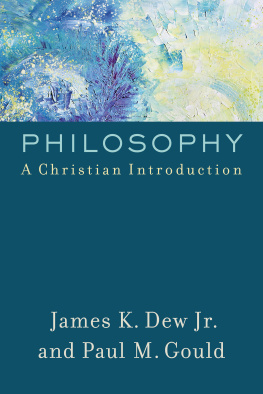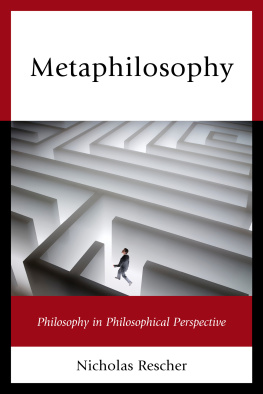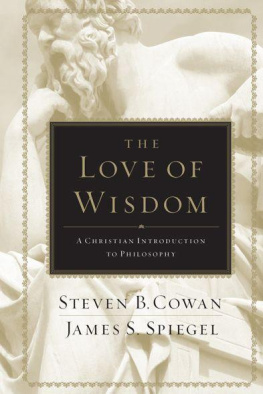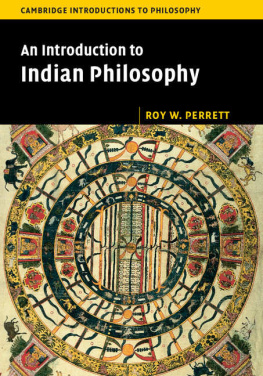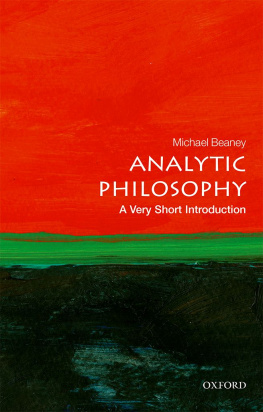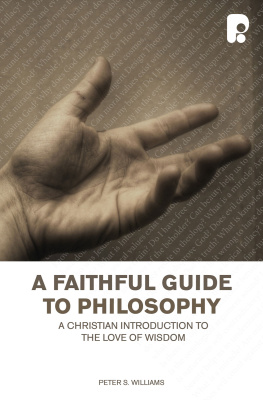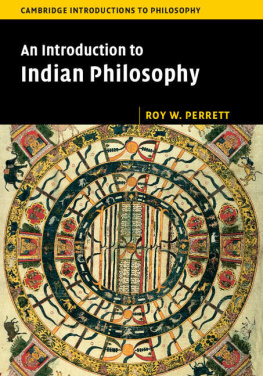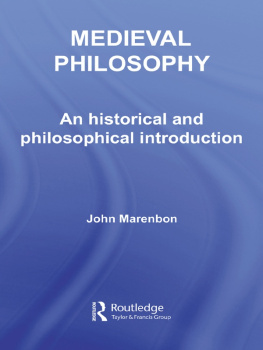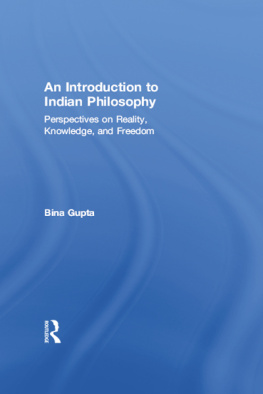1. Introduction to Philosophy
2. Truth and Knowledge
3. Justification and Reformed Epistemology
4. Skepticism, Certainty, and Virtue Epistemology
5. Faith, Reason, and Modern Science
6. Natural Revelation and Natural Theology
7. The Nature of Reality
8. Properties and Universals
9. Particulars
10. Freedom and Determinism
11. Minds, Bodies, and Human Persons
12. The Existence of God
13. Evil and the Hiddenness of God
14. Divine Interaction: Miracles and Prayer
15. The Possibility of Life after Death
16. Metaethics
17. Normative Ethics
Acknowledgments
T he book you hold in your hands started with a simple vision to produce a clear, up-to-date, and comprehensive resource for Christians new to philosophy. Both of us teach or have taught in Christian settings (Jamie at Southeastern Baptist Theological Seminary and Paul formerly at Southwestern Baptist Theological Seminary) and have a particular burden to help Christians think clearly about the things of God and the deep things of life. Like most professors, however, over the years weve watched our students struggle with the concepts covered in our introductory philosophy courses. Some students give up and never return, while others plod along, eventually finding their philosophical legs. There are two things that are discouraging about those who give up. First, we believe that philosophy is simply too important to give up on. Philosophy continues to play a vital role in our lives and in contemporary discussions on almost everything. As such, we need more students, not fewer, to engage in these philosophical discussions. And, since we inevitably philosophize about the important things of life, we may as well learn how to do it well. Second, were not convinced that philosophy needs to be so difficult. Sure, there are a lot of philosophical issues that are difficult, but there are also a lot of issues that arent that difficult. We suspect that a focus on clarity from those who write, speak, and teach about philosophy, coupled with a bit of persistence and grit from students, will help students advance in their philosophical abilities. This book is our best effort toward clarity in writing about philosophy.
Like any project of this nature, producing the manuscript has had its ups and downs. Sometimes writing is easy, but most of the time it is painfully difficult. Without the help and encouragement of the people who surround us, such a project would never come to fruition. So, needless to say, we are deeply grateful to those who have pitched in to help us produce the manuscript for this book. First, we want to thank our friends and colleagues who read our chapters and provided valuable feedback. To Ross Inman, Robert Garcia, and Tyler McNabb, thank you for letting us bounce ideas off you and for the dialogue, which brought so much clarity to our work. To Wesley Davey and Ashlee Evans, thank you for reading and rereading each chapter. Youve helped us tremendously, and we are grateful. To Alex Oakley, thank you for helping with research, formatting, and the bibliography. Second, we would like to thank our students for the years of dialogue, discussion, and questions that have sharpened us and prepared us to write this book. Without you, we certainly wouldnt have tackled such a project. Third, we want to thank our incredible editor, Dave Nelson, and the entire Baker family. Your encouragement, support, wisdom, and patience have been tremendous. Working with you all has been a truly fantastic experience. Finally, we would like to thank our families for their support. To our kiddosNatalie, Nathan, Samantha, Samuel, Austin, Madeleine, Travis, and Joshuathanks for keeping us grounded and for taking pleasure in our work. And to our incredible wives, Tara and Ethel, thank you for letting us do what we do and for the kindness and encouragement you offer each day. We surely wouldnt have finished this without you!
Introduction to Philosophy
T his is a book on philosophy. It is reasonable to ask, in this introductory chapter, about philosophys aim and subject matter. What is philosophy? There are two historically prominent starting points for answering this question. Some say philosophy begins with human beings awareness of their mortality. How exactly does philosophy train us for death? For Plato, philosophy prepares the soul, on release from its body, to be united with that which it most deeply longs for: knowledge and wisdom. Thus philosophy can free us from the fear of death and help us to live well.
Another historically prominent starting point for philosophy, also found in Plato, begins not with humans awareness of their mortality but with their wonder at the surrounding world. By nature, humans want to know truth about the world and their place in it. This sense of wonder, Plato states in the Theaetetus , is where philosophy begins and nowhere else.
Taking both of these historically prominent starting points into account, we shall understand philosophy as the pursuit of knowledge and wisdom for the sake of flourishing . This construal of philosophy views knowledge and wisdom as goods valuable in themselves and for what they bring. Thus understood, we think philosophy is intensely practical, contrary to popular perception (more below).
What Is Philosophys Relationship to Christianity?
Philosophy, according to Plato, is a gift from the gods to the mortal race whose value neither has been nor ever will be surpassed.
Philosophy, according to Ferry, leads to atheism for two reasons. First, the religious claim that we can overcome our mortality and be with our loved ones for eternity is too good to be true. Second, the goodness of God (expressed in this hope for eternity with loved ones) is hard to reconcile with the amount, distribution, and horrific nature of evil we find in this world. Thus we must find salvation from within by the use of unaided reason.
In reply, eternity with loved ones is indeed desirable. Its desirability, by itself, does not render it false, however. The relevant questions, then, have to do with whether the claims of religion are true. These, as weve seen, are philosophical questions. If, as we shall argue in this book, (1) there are good reasons to think that God exists (chap. 12), (2) evil is compatible with Gods existence (chap. 13), and (3) the religion that God founded provides a means of eternal life (for this possibility, see chap. 15), then philosophy does not, contrary to Ferrys claim, lead to atheism. We follow a more ancient path in this book, a path well trodden by those who think there is no inherent conflict between the deliverances of philosophy and the deliverances of religion.

